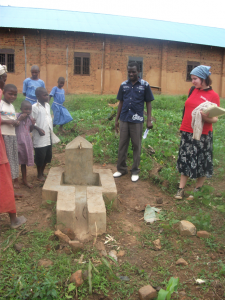 The UN says: ‘Water is key to food security. Crops and livestock need water to grow’. However, in some less economically developed countries water is a limited resource. On my recent visit to Uganda I saw how inaccessible water is for households, especially for agricultural purposes.
The UN says: ‘Water is key to food security. Crops and livestock need water to grow’. However, in some less economically developed countries water is a limited resource. On my recent visit to Uganda I saw how inaccessible water is for households, especially for agricultural purposes.
In September, I went to Uganda for four weeks as part of the UWE Global Water Security Project, where I was based in the Kanungu district working with Volunteer Uganda. The basis of our research was agriculture and we collected data in six sub-counties in the district.
When conducting one household survey in Rugyeyo, I was surprised by an answer to one of the questions: “What is the main source of water for your crops in the a) wet season and b) dry season?” As expected, rainfall was their main source in the wet season. However, they mentioned using taps in the dry season, which is unusual in Kanungu – many don’t farm in the dry season because of the lack of rain, irrigation systems and the means to water their crops.
I asked to see this tap (you can see the tap in the picture above, with two of my research team and a few members of the community). This tap is a really important part of the community, as you can see by the amount of people who were excited to show it to us.
When we turned the tap, however, no water came out. They explained that the community currently didn’t have enough money to pay for water, so they can’t use the tap until they can afford to pay the water bill.
This shows that systems have been put in place in this area for easy access to clean water, but if the community does not have the means to pay for the water, then this defeats the object. New schemes need to be put in place in order for communities to have working taps that don’t stop working when the funds run out, as ‘Water is fundamental for life and health. The human right to water is indispensable for leading a healthy in human dignity’ (UN, 2002).
Charlotte is a third-year BA (Hons) Geography student at UWE.
